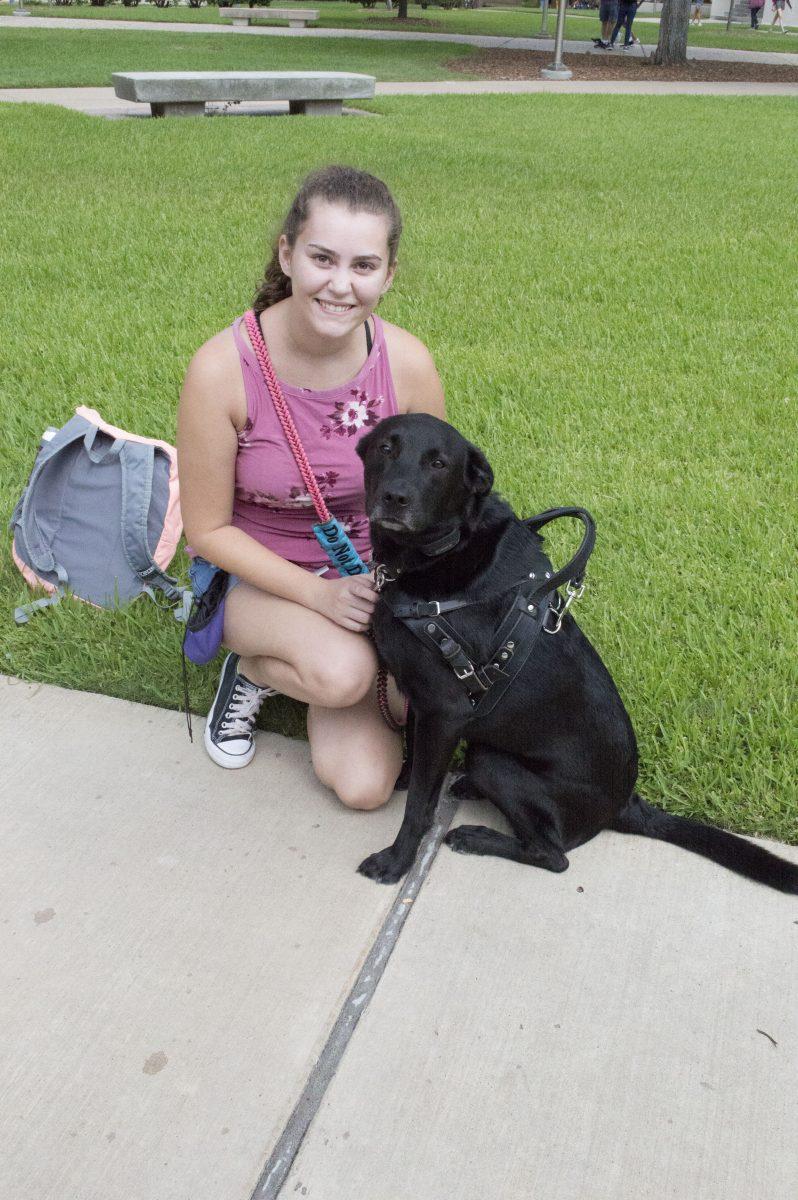Texas A&M organizations such as Patriot Paws and Aggie Guide-Dogs and Service-Dogs (AGS) train dogs to help veterans and people with disabilities live their daily lives.
Angelica Frazer, Patriot Paws president and biomedical sciences junior, said it makes her happy to see multiple organizations on campus dedicated to training service animals.
“We are working with animals to help people out because it’s a service that we want to provide,” Frazer said. “We want to pay it forward. It just raises awareness for people who don’t know what a service dog is or why they see a dog in a vest out in public”.
Beginning in 1996, AGS was the only organization at A&M to train service dogs until Patriot Paws was created in 2013. Paige Hastie, senior trainer supervisor of AGS and animal science senior, said the organization was once the only group of its kind in the nation.
“Last year we celebrated our 21st birthday,” Hastie said. “AGS was the first and only phase one service dog training organization on any college campus in the U.S. and held this position until
2011.”
Frazer said the dogs begin their training process when they are around the age of three to four months. Students help socialize the dogs by taking them along during their daily routine.
“We take them to class, take them on the bus,” Frazer said. “Most of our original dogs go to the training center. They learn all their tricks there and then they come to us and we work on the distractions. Later on when they get older we work on working with disabilities, such as opening the fridge, pushing a button for help, or going to get help.”
Frazer said said the long-term goal of Patriot Paws is to increase the total number of service dogs at A&M.
“We’d like to have as many veterans get as many dogs as possible,” Frazer said. “Our short-term goals would just be to get the dogs through each step. I celebrate when my dog knows how to paw to let me know he wants to go outside. Those are my personal short-term goals.”
Training service dogs is not a matter to be taken lightly and requires a certain level of patience and dedication, according to Hastie.
“No matter how well trained, service dogs are not robots,” Hastie said. “They have good days and bad. Training a dog is so much more than a mechanical action, it is a task of the heart. Raisers who commit themselves to raise these dogs see immense rewards and get to go forward knowing that they have made a world of difference to a person with disability.”
Campus organizations train service dogs to lend a helping paw
October 8, 2018
0
Donate to The Battalion
$2065
$5000
Contributed
Our Goal
Your donation will support the student journalists of Texas A&M University - College Station. Your contribution will allow us to purchase equipment and cover our annual website hosting costs, in addition to paying freelance staffers for their work, travel costs for coverage and more!
More to Discover










